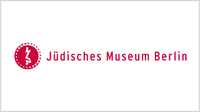Zusammenfassung
- Was Konferenz | Tagung — Museums, Religion, and the Work of Reconciliation and Remembrance
- Wann to (Europe/Berlin / UTC200)
- Wo Jüdisches Museum Berlin
- Anmeldung bei Helen Franziska Veit
- Anmeldung bis 02.04.2019
- Termin herunterladen iCal Datei herunterladen
Beschreibung
Our workshop comes a time of heightened awareness of the need for repatriation of artifacts acquired through networks of colonial or state coercion, especially those belonging to Indigenous nations. At the same time, the contested notion of reconciliation is increasingly framed as a pathway to publicly remember (without necessarily repairing) national histories of exclusion, xenophobia, and violence. With a specific focus on how categories of religion and spirituality have become significant for new kinds of relationships between museums, objects, and communities, our workshop will ask how thinking about the spiritual claims associated with museum objects can help us to better understand the politics and possibilities of reconciliation and remembrance. Our conversation takes as one point of departure Ruth Phillips’ concept of the “second museum age,” a time when museums have come to confront the ongoing politics of their work of curation and storytelling, in part by building relationships with communities both near and far who assert spiritual connections with a museum’s objects or stories.
Featuring a public panel on Thursday evening and a two-day multidisciplinary and international workshop bringing together curators and scholars, “Museums, Religion, and the Work of Reconciliation and Remembrance” will galvanize a conversation about religion and public memory across theoretical, curatorial, and historical perspectives.
Programm
Thursday
(open to the public)
18:30 – 19:00 Welcome
Pamela Klassen (University of Toronto), Monique Scheer (University of Tübingen), and Yasemin Shooman (Jewish Museum Berlin)
19:00 – 21:00 Keynote
Jisgang Nika Collison (Haida Gwaii Museum Kay Llnagaay)
Yahguudangang — To Pay Respect
Léontine Meijer-van Mensch (Jewish Museum Berlin)
Signification and the liquid museum: the Jewish and the ethnografic
Moderated by Sharon Macdonald (Humboldt University Berlin, CARMAH)
Not open to the public;
requires registration + confirmation (until April 1st to helen-franziska@uni-tuebingen.de)
Friday
9:00 – 10:30 Conservation and Spiritual Care
Maureen Matthews (Manitoba Museum, Winnipeg)
We Are NOT All Treaty People YET: Renewing Treaty Relationships at the Manitoba Museum
Hannah Turner (University of Leicester)
Digitizing What is Valued: How do we care for, protect, and respect the digital data of repatriated belongings?
Duane Jethro (CARMAH, Berlin)
Indigenous Knowledge Conservation and Spiritual Care as Nation-Building at //hapo Museum, Freedom Park, South Africa
10:45 – 12:15 Provenance and Ancestors
Cecile Fromont (Yale University)
Sins of the Ancestors? Collection, Provenance, Repatriation of African Objects
Yaniv Feller (Wesleyan University)
Native and Wandering Jews
Michal Friedlander (Jewish Museum Berlin)
Provenance hiccups and the definition of Jewish objects
Robin Gray (University of Toronto)
The Colonizing Properties of Property and the Transformation of Indigenous Cultural Heritage
12:15 – 13:45 Lunch
13:45 – 15:15 Display and Devotion
Ruba Kanaan (Aga Khan Museum, Toronto)
Exhibiting Islam or Exhibiting the Arts of Muslims? Collection Display and Reception at the Aga Khan Museum
Rebekka Habermas (University of Göttingen)
Exhibiting in Colonial Times: Silencing, Displaying and Making Religion
Laura Peers (Trent University)
Visiting with the Ancestors: the Indigenization of museums as ritual spaces
15:45 – 17:15 Acquiring and Relinquishing
Ines de Castro (Linden Museum, Stuttgart)
A Bible and a Whip: Complexities of Restitution Negotiations
Cara Krmpotich (University of Toronto)
Scarcity, Dispossession and Salvage: The Work of a Reconciliation Quilt to Think These with Care
Larissa Förster (CARMAH, Berlin)
Restitution: Between repair, reconciliation and commemoration
Saturday
9:00 – 11:00 Optional Tour of the Jewish Museum Berlin with Miriam Goldmann, curator at the Jewish Museum Berlin
11:15 – 12:45 Curation and Stories
Peter Manseau (Smithsonian Institution, Washington DC)
Curating Echoes: Collecting the Past to Tell Stories for the Future
Courtney Bender (Columbia University)
Mrs. Rockefeller’s Exquisite Corpse
Christine Gerbich (CARMAH, Berlin)
Curating relationships – working with Muslim Youth in the Museum for Islamic Art in Berlin
12:45 – 14:15 Lunch
14:15 – 15:45 Objects and Stories
Alan Corbiere (Carleton University)
Thresholds of Sacrality: Contexts for exhibiting items of Anishinaabe significance
Thomas Thiemeyer (University of Tübingen)
(Dis-)Enchanting Objects: How Curators Attribute Values to Things
Marisa Karyl Franz (University of Toronto)
A Failed Acquisition: When a Yakut shaman’s coat was not collected
16:15 – 17:45 Belonging and Difference
Friedrich von Bose (Humboldt University Berlin)
On the question of (not) showing. Spirituality as a category of knowledge in the Humboldt Forum
Ayelet Schachar (Max Planck Institute, Göttingen)
Who Belongs? Legal and Cultural Barriers to Equal Membership
Alina Gromova (Jewish Museum Berlin)
Future memories. Multidirectional Heritage in Museums
18:00 – 18:30 Next Steps Planning
Sunday
9:00 – 12:00 Optional Museum Tour
Kontakt
Nähere Informationen
Helen Franziska Veit
helen-franziska.veit[ at ]uni-tuebingen.de

